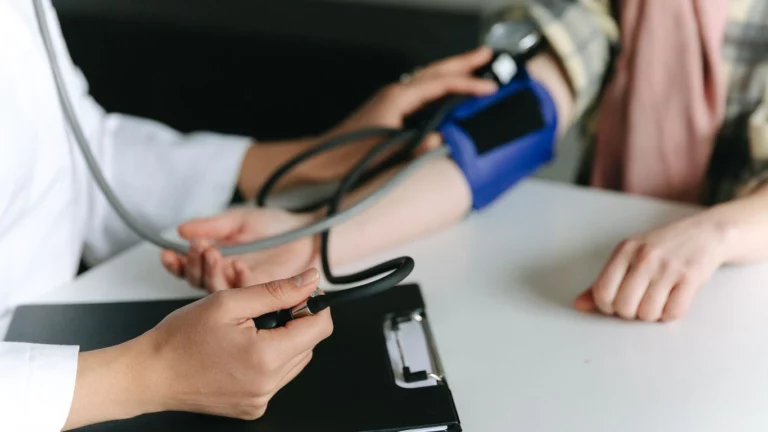GERD: Effective Solutions to Manage Acid Reflux and Live Comfortably
Acid reflux, also known as gastroesophageal reflux disease (GERD), is a common yet often misunderstood condition that affects millions of people worldwide. As a GERD expert specializing in digestive health, I’ve seen firsthand how it can disrupt daily life. From heartburn to difficulty swallowing, the symptoms can range from mildly uncomfortable to downright debilitating. The good news? There are effective solutions to manage acid reflux that can significantly improve your quality of life. Whether you’re newly diagnosed or have been dealing with the condition for years, it’s never too late to start managing it better. Let’s dive into some of the most reliable, tried-and-true strategies to keep your symptoms under control.
Understanding Acid Reflux: The Basics
If you’re reading this, chances are you’ve experienced acid reflux or know someone who has. But what exactly is it? Acid reflux occurs when stomach acid or, occasionally, bile flows backward into the esophagus—the tube connecting your mouth to your stomach. This backward flow can irritate the lining of your esophagus, leading to discomfort, burning sensations (heartburn), and sometimes more serious symptoms like regurgitation, chest pain, or difficulty swallowing.
The reasons for acid reflux can vary. For some, it’s related to a weakened lower esophageal sphincter (LES), which normally keeps stomach acid where it belongs. Others may experience it due to lifestyle factors such as poor diet, stress, or obesity. Regardless of the cause, the discomfort is real, and finding effective solutions to manage acid reflux is crucial.
Why Lifestyle Changes Are Key
One of the first steps in managing acid reflux effectively is adjusting your lifestyle. Over the years, I’ve seen how small changes in your daily habits can have a huge impact on controlling symptoms. Here are a few tips that can make a world of difference:
- Eating smaller meals more frequently: Large meals put pressure on your stomach, increasing the risk of acid reflux. By eating smaller, more frequent meals, you give your digestive system a chance to work more efficiently.
- Avoiding trigger foods: Certain foods are known to worsen acid reflux. These include spicy dishes, fatty foods, chocolate, caffeine, and alcohol. In my experience, cutting back on these can significantly reduce symptoms.
- Eating earlier in the evening: I always advise my patients to avoid eating late at night. This gives your body ample time to digest the food before lying down, which helps prevent reflux while you sleep.
The Power of Proper Posture
It might sound a bit strange, but the way you sit or stand after eating can play a role in managing acid reflux. I’ve noticed that some people, especially those who work at desks for long hours, tend to slouch. This posture puts additional pressure on the stomach, contributing to acid reflux. A simple fix? Sit up straight and avoid hunching over after meals.

Even when relaxing, try not to slouch. When standing, focus on maintaining an upright posture that reduces the pressure on your stomach. You’d be surprised how much this helps in preventing discomfort after eating!
Weight Management: A Crucial Factor
Excess weight can exacerbate acid reflux. The pressure of extra pounds on your abdomen can push stomach contents upward, causing reflux. That’s why maintaining a healthy weight is an essential part of managing this condition. From my personal experience and professional practice, even a small amount of weight loss can make a significant difference in reducing symptoms.
While it’s not always easy to lose weight, incorporating regular physical activity and making healthier food choices can gradually lead to positive results. It’s not about drastic changes but rather about making sustainable adjustments that benefit your overall health and your digestive system.
The Role of Medications: When They’re Necessary
For some people, lifestyle changes alone aren’t enough to keep acid reflux in check. In such cases, medications can be a helpful part of the treatment plan. As someone who has helped many patients find relief, I can tell you that medications fall into different categories, each addressing the issue from a unique angle. Here are the main types of medications used to manage acid reflux:
- Antacids: These over-the-counter medications work by neutralizing stomach acid. They provide quick relief but don’t address the underlying cause of acid reflux.
- H2 blockers: These reduce the amount of acid your stomach produces. They offer longer-lasting relief compared to antacids but may require a prescription in some cases.
- Proton pump inhibitors (PPIs): PPIs are one of the most effective medications for long-term acid suppression. They work by blocking the production of stomach acid entirely, helping to heal the esophagus and prevent symptoms from returning.
While medications are an essential tool for some, I always emphasize that they should be part of a larger strategy that includes lifestyle adjustments. In fact, many of my patients find that by making healthier choices, they can eventually reduce or even eliminate their dependence on medications over time.

Alternative Therapies: Exploring Natural Remedies
For those who prefer to take a more natural approach, there are a variety of alternative therapies that may help manage acid reflux symptoms. These options are often used alongside traditional treatments for enhanced relief. Some of the most popular natural remedies I recommend include:
- Herbal teas: Teas made from chamomile, ginger, or licorice root can soothe the digestive system and reduce reflux symptoms.
- Aloe vera juice: Aloe vera is known for its anti-inflammatory properties, which can help calm the esophagus and reduce irritation caused by stomach acid.
- Apple cider vinegar: While this might sound counterintuitive, some people find relief by taking a small amount of diluted apple cider vinegar, as it can help balance stomach acid production.
Before trying any natural remedies, though, it’s important to consult with your healthcare provider. While these options can be beneficial, they might not be suitable for everyone, especially those with certain medical conditions.

Creating a GERD-Friendly Diet: What to Eat and What to Avoid
If you’re living with acid reflux, you’ve probably realized that diet plays a huge role in managing symptoms. In my experience as a GERD expert, what you eat—or don’t eat—can make all the difference between a calm stomach and an uncomfortable flare-up. The good news is that with a bit of knowledge and planning, you can create a GERD-friendly diet that supports your digestive health and keeps acid reflux under control.
When I talk to my patients about food, I remind them that it’s not just about avoiding triggers. It’s about nourishing your body with foods that actively promote digestive health. So, let’s dive into some of the best foods to include in your diet and others to be cautious about.
Best Foods for Acid Reflux: Building a Solid Foundation
Let’s start with the foods that are your allies in the battle against acid reflux. These foods help to keep your stomach calm and your digestion running smoothly. I’ve seen countless people improve their symptoms just by incorporating more of these into their meals:
- Oatmeal: Oatmeal is a great option for breakfast because it’s a whole grain that absorbs stomach acid. It’s filling and gentle on the stomach, which makes it an ideal choice for those with acid reflux.
- Ginger: Ginger has natural anti-inflammatory properties that help soothe the digestive tract. You can add fresh ginger to smoothies or sip on ginger tea throughout the day.
- Non-citrus fruits: Bananas, melons, and apples are excellent choices since they’re low in acid and less likely to trigger reflux. I always recommend my patients keep a banana or apple handy as a quick snack.
- Leafy greens and vegetables: Vegetables like spinach, kale, and broccoli are not only low in acid but packed with nutrients that support your overall health. I encourage people to fill half their plate with veggies for every meal.
- Lean proteins: Skinless chicken, turkey, and fish provide protein without the excess fat that could trigger reflux. Grilling or baking these proteins is often the best way to prepare them.

Foods to Avoid: Identifying Common Triggers
While the foods above are your friends, there are certain items that can aggravate acid reflux. In my years of working with GERD patients, I’ve seen a direct correlation between certain foods and flare-ups. Here are some common offenders to keep on your radar:
- Spicy foods: Spices like chili powder, black pepper, and hot sauce can irritate the lining of the esophagus and trigger reflux. If you love spicy food, try to keep it to a minimum and opt for milder seasoning.
- Fried and fatty foods: Fried chicken, french fries, and fatty cuts of meat put a strain on your digestive system, slowing down the stomach’s ability to empty. This creates more pressure in the stomach, increasing the chances of acid reflux.
- Citrus fruits: While fruits like oranges and grapefruits are healthy, their high acidity can irritate your esophagus. If you love citrus, try limiting your intake and opt for non-citrus fruits like melons or bananas.
- Chocolate: Unfortunately, chocolate is a double whammy. Not only does it contain caffeine, but it also has a compound called theobromine, which can relax the LES and trigger reflux. I often recommend swapping out chocolate for a handful of berries or a light dessert with minimal sugar.
- Caffeinated drinks: Coffee, sodas, and energy drinks can relax the LES and increase the risk of acid reflux. If you’re a coffee lover, try switching to decaf or herbal teas that are gentler on your stomach.
The Impact of Sleep on Acid Reflux: How to Rest Easy
If you’re dealing with acid reflux, sleep can become a major challenge. Many people with GERD experience worse symptoms at night, often waking up with a burning sensation in their chest or a bitter taste in their mouth. But don’t worry—there are simple steps you can take to improve your sleep and reduce nighttime reflux. I’ve helped many patients improve their quality of sleep, and I want to share these tips with you.
Position Matters: How to Sleep with Acid Reflux
One of the easiest ways to reduce nighttime acid reflux is by adjusting your sleeping position. I always tell my patients to avoid lying flat on their backs immediately after eating, as this can make reflux symptoms worse. The reason? Gravity. When you lie flat, it’s easier for stomach acid to flow back into the esophagus.
The solution? Try propping up your upper body with a wedge pillow or by raising the head of your bed. This position helps keep stomach acid down where it belongs. I’ve had patients swear by this simple change in sleep posture, noting that it significantly reduced their nighttime symptoms.
When to Stop Eating Before Bed
As tempting as it might be to have a late-night snack, eating too close to bedtime can trigger acid reflux. I recommend stopping all eating at least two to three hours before you hit the pillow. This gives your body time to digest food properly and prevents the risk of acid rising up into your esophagus while you sleep.
If you’re feeling hungry before bed, opt for a light, easy-to-digest snack like a small portion of oatmeal or a banana. These are both soothing and won’t trigger a flare-up.

Stress Management: A Hidden Trigger of Acid Reflux
It’s easy to overlook the role stress plays in acid reflux, but trust me—it’s real. When you’re stressed, your body produces more stomach acid, and your digestive system doesn’t work as efficiently. Over time, chronic stress can contribute to or even exacerbate GERD symptoms.
In my practice, I’ve seen many patients find relief by incorporating stress-reducing activities into their daily routines. Here are a few techniques that can help you keep stress at bay and reduce the likelihood of reflux flare-ups:
- Deep breathing exercises: Deep breathing helps activate the parasympathetic nervous system, which promotes relaxation and aids digestion. Just five minutes of focused breathing a few times a day can make a big difference.
- Yoga and meditation: Both yoga and meditation help calm the mind and body. Many of my patients find that regular yoga sessions reduce stress and improve their ability to cope with reflux symptoms.
- Physical activity: Exercise is an excellent way to release tension and improve overall health. Whether it’s a walk around the block or a full workout, staying active reduces stress and can help prevent acid reflux.

Understanding GERD Complications: What You Need to Know
If you’ve been managing acid reflux for a while, you might have heard about the potential complications of GERD. While most people with acid reflux experience it as an inconvenience or annoyance, it’s important to recognize that untreated or poorly managed GERD can lead to more serious issues over time. As someone who has worked extensively with GERD patients, I want to share the potential long-term effects so you can stay ahead of your condition.
Esophageal Damage: The Danger of Chronic Reflux
One of the most concerning complications of untreated GERD is the damage it can cause to the esophagus. Over time, frequent exposure to stomach acid can lead to a condition called esophagitis—an inflammation of the esophagus. I’ve seen many patients develop esophagitis after years of ignoring their reflux symptoms. It’s characterized by pain, difficulty swallowing, and potential bleeding. If left untreated, this inflammation can lead to scarring, narrowing, or strictures in the esophagus, which make swallowing even more difficult.
Another potential complication is Barrett’s esophagus, a condition where the cells lining the lower part of the esophagus become abnormal due to constant acid exposure. While Barrett’s esophagus doesn’t always lead to cancer, it does increase the risk of developing esophageal cancer. I always stress the importance of managing acid reflux early to avoid these long-term consequences. Regular check-ups with your doctor are crucial if you have GERD.

Advanced GERD Treatments: When Lifestyle Changes Aren’t Enough
While lifestyle changes and over-the-counter medications work wonders for many people with GERD, there are situations where more advanced treatments may be necessary. I’ve encountered patients who, despite their best efforts with diet and lifestyle, still struggle with persistent symptoms. If you find yourself in this situation, don’t lose hope—there are several medical treatments that can help.
Surgical Solutions: A Permanent Fix?
If medications and lifestyle changes don’t provide the relief you need, surgery may be an option. Fundoplication is the most common surgical procedure for GERD. During this surgery, the top of the stomach is wrapped around the lower esophagus to prevent acid from flowing back up. This procedure has a high success rate and can offer long-term relief from GERD symptoms. However, it’s typically considered only when other treatments haven’t worked, and surgery is generally reserved for more severe cases.
Another option that’s gaining popularity is the LINX device, a small ring of magnetic beads implanted around the LES. This device helps prevent acid reflux by reinforcing the LES while still allowing it to function naturally. The LINX procedure is less invasive than fundoplication, and many patients experience significant improvement in their symptoms after the procedure. It’s important to discuss the risks and benefits of any surgery with your doctor to determine the best course of action for you.
Endoscopic Procedures: Minimally Invasive Options
For those looking for a less invasive alternative to surgery, endoscopic treatments may be worth exploring. These procedures are typically performed through the mouth and don’t require large incisions. One such procedure is transoral incisionless fundoplication (TIF), which uses a device inserted through the mouth to reinforce the LES and prevent reflux. This approach has a faster recovery time compared to traditional surgery and can be highly effective for some patients.
Another endoscopic option is radiofrequency ablation, which uses heat to help tighten the lower esophagus and prevent acid reflux. While these treatments are promising, they are generally less effective than surgery and may only provide temporary relief for some patients. Always consult with your healthcare provider to determine whether an endoscopic procedure is right for you.

Natural and Alternative Remedies for GERD: What Works?
As much as we focus on conventional treatments, many people prefer natural remedies to manage their acid reflux. While I always recommend consulting with a healthcare professional before trying new remedies, I can tell you that there are several natural options that may provide relief. I’ve seen many patients successfully incorporate these into their routines with great results, often as complementary treatments alongside their prescribed medications.
Herbal Supplements: Do They Help?
Herbal remedies have been used for centuries to support digestive health, and certain herbs have been shown to help alleviate GERD symptoms. Some of the most popular ones include:
- Slippery elm: Known for its soothing properties, slippery elm can help protect the lining of the esophagus and reduce irritation caused by stomach acid.
- Marshmallow root: Like slippery elm, marshmallow root contains mucilage, which helps coat and protect the digestive tract. It can be taken as a tea or supplement to ease symptoms.
- Licorice root: Deglycyrrhizinated licorice (DGL) is often recommended for its ability to promote mucous production and protect the stomach lining. However, it’s important to use DGL rather than regular licorice, as the latter can raise blood pressure.
While these remedies are not guaranteed to replace medication or lifestyle changes, they can provide additional relief when used as part of a comprehensive treatment plan. Be sure to speak with your doctor before adding any herbal supplements to your routine, especially if you are on other medications.
Avoiding Common Mistakes: What Not to Do
Along with implementing effective solutions, it’s just as important to avoid common mistakes when managing GERD. I’ve seen many patients unknowingly make these errors, which can hinder their progress:
- Over-relying on antacids: While antacids can provide quick relief, relying on them too much can mask underlying issues. They don’t address the root cause of acid reflux, and overuse can sometimes worsen symptoms in the long run.
- Skipping meals: Skipping meals may seem like a good way to prevent reflux, but it can actually make things worse by increasing stomach acid production. It’s better to eat smaller, balanced meals throughout the day to keep acid production in check.
- Ignoring the importance of hydration: Drinking enough water is essential for good digestion. Dehydration can slow down digestion and contribute to reflux symptoms. Aim for plenty of water throughout the day, but avoid drinking large amounts with meals to prevent excess pressure on the stomach.
Disclaimer
Always consult with a healthcare provider before starting any new treatment or making significant changes to your diet or lifestyle, especially if you have been diagnosed with GERD or any other medical condition. The advice and information provided here are based on personal experience and general knowledge, but they should not replace professional medical advice, diagnosis, or treatment.
For more information about GERD and related conditions, feel free to check out additional resources available at HealthUsias.com.

Camellia Wulansari is a dedicated Medical Assistant at a local clinic and a passionate health writer at Healthusias.com. With years of hands-on experience in patient care and a deep interest in preventive medicine, she bridges the gap between clinical knowledge and accessible health information. Camellia specializes in writing about digestive health, chronic conditions like GERD and hypertension, respiratory issues, and autoimmune diseases, aiming to empower readers with practical, easy-to-understand insights. When she’s not assisting patients or writing, you’ll find her enjoying quiet mornings with coffee and a medical journal in hand—or jamming to her favorite metal band, Lamb of God.







